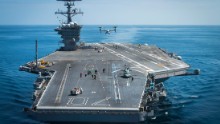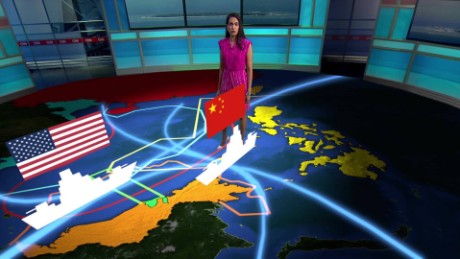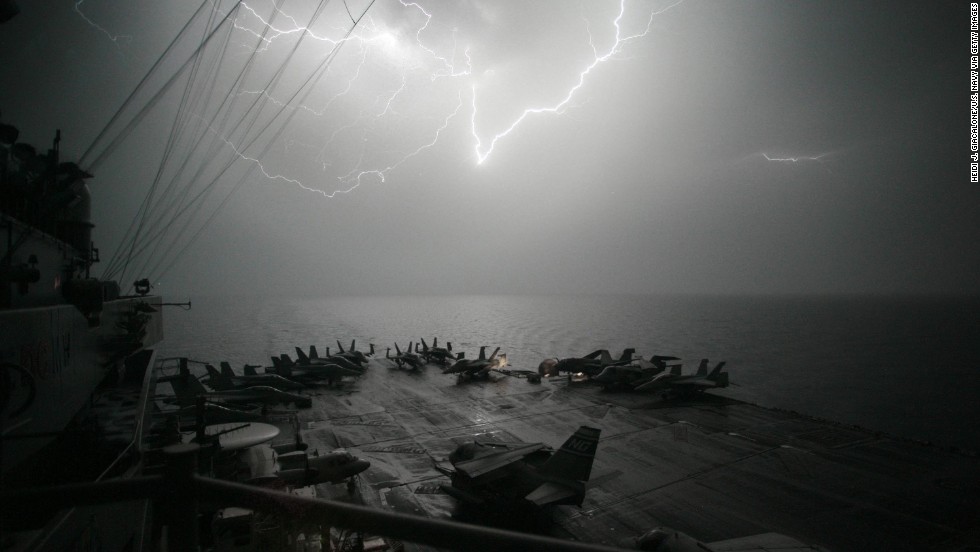US carrier starts ‘routine’ patrols in South China Sea
“China respects and upholds the freedom of navigation and overflight in the South China Sea, which countries enjoy under international law, but firmly opposes any country’s attempt to undermine China’s sovereignty and security in the name of the freedom of navigation and overflight,” China’s Foreign Ministry spokesman Geng Shuang said.
The contested waters are a crucial shipping route at the heart of a territorial dispute that pits multiple countries against one another.
Territorial dispute
China has a long history of maritime disputes with its South China Sea neighbors.
China claims almost all of the South China Sea, including islands more than 800 miles from the Chinese mainland, despite objections from neighbors such as the Philippines, Malaysia, Brunei and Vietnam.
Beijing has also created artificial islands in the area, outfitting some of them with military features. According to the US, China has reclaimed more than 3,000 acres in the Spratly Islands since 2014.
Though the US takes no position on the territorial dispute in the South China Sea, its warships have conducted routine “freedom of navigation” operations near the reclaimed islands, eliciting warnings from Beijing.
The most recent of those was in October by the guided-missile destroyer USS Decatur.
China at the time called it a serious breach of law and an intentional provocation.
There is no word whether the Vinson or the Meyer would be getting near the Chinese-claimed islands.
But Chinese media reacted quickly to the Vinson’s cruise.
An opinion article in China’s state-sanctioned Global Times declared that the deployment of the Vinson showed that the US wants to “create provocations and drive a wedge” between China and other countries party to the South China Sea.
“This may trigger frictions or even military clashes between China and the US,” wrote Li Jie, a Beijing-based naval expert.
A separate Global Times article decried Trump’s policy in the South China Sea as “unclear” and said that it may escalate tensions.
Compared to Barack Obama, Trump poses more of a risk to the area and China should “prepare diplomatically and militarily,” Li is quoted as saying.










